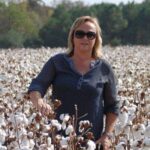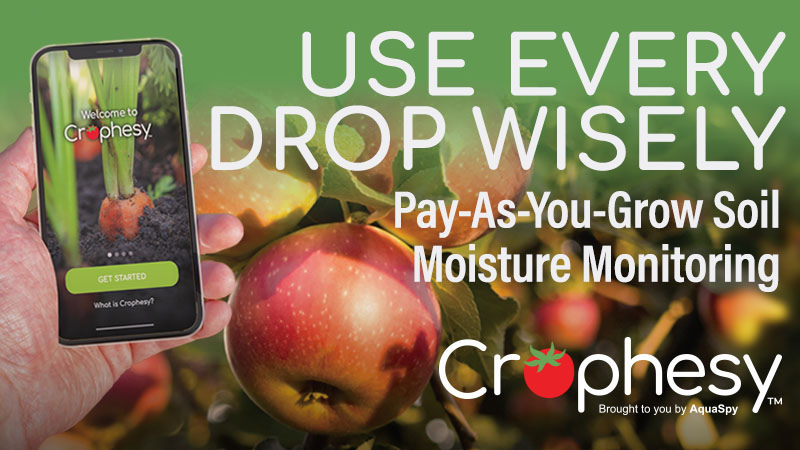Sharing the Soil Spreads the Wealth at Plainville Farm
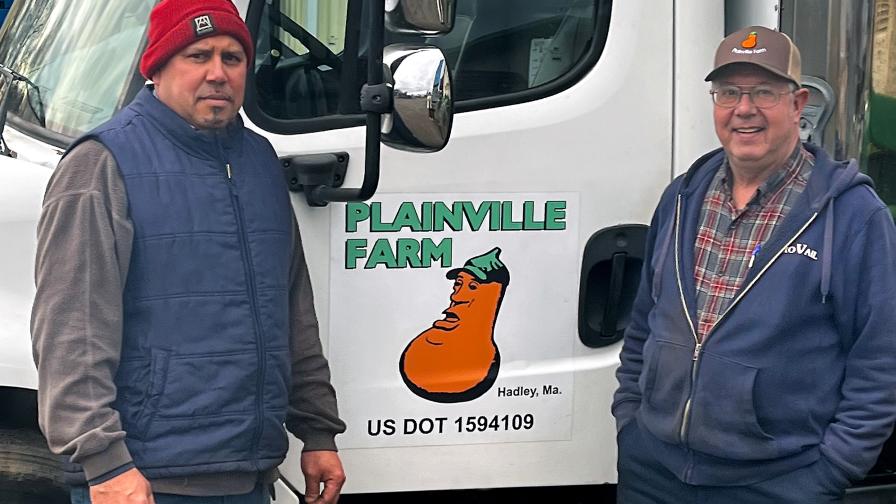
Walter “Wally” Czajkowski (right) is a big believer in tapping into the talents of his neighbors and employees, including his long-time friend and worker Juan Ovalle.
Photo courtesy of Plainville Farm
Walter “Wally” Czajkowski, Owner of Plainville Farm, views farming as a community experience. Yes, he owns his land, but the land is just one area in Hadley, MA. So, he works with neighbors to improve everyone’s chance at good prices through bartering and spot sales, for example.
To some extent, Czajkowski’s location has molded his operational philosophy.
“We don’t have the land base to get really big,” he says. “So, we have to work together to be successful.”
One of the most novel systems he has in place focuses on the community of his employees. He offers them the chance to improve their financial stability by allowing them to produce their own crops on his land.
Giving Workers the Chance to Get Ahead
Here’s how Czajkowski’s employee-based production program works.
1. An employee is given the opportunity to work a piece of the 250-acre produce section of the farm to grow a crop.
2. Czajkowski schedules nutrition and treatment for all the land in the normal course of management. All production is packed in the farm’s certified barn and safety inspected.
3. The employee takes care of all other management aspects and earns income from the crop.
Czajkowski says the system benefits him as much as it does his team. His employees have a greater understanding and dedication to crop production across the operation. The benefit of employee-owned production in part is why Czajkowski comfortable decrees that “we probably have the best crew in New England working on this farm.”
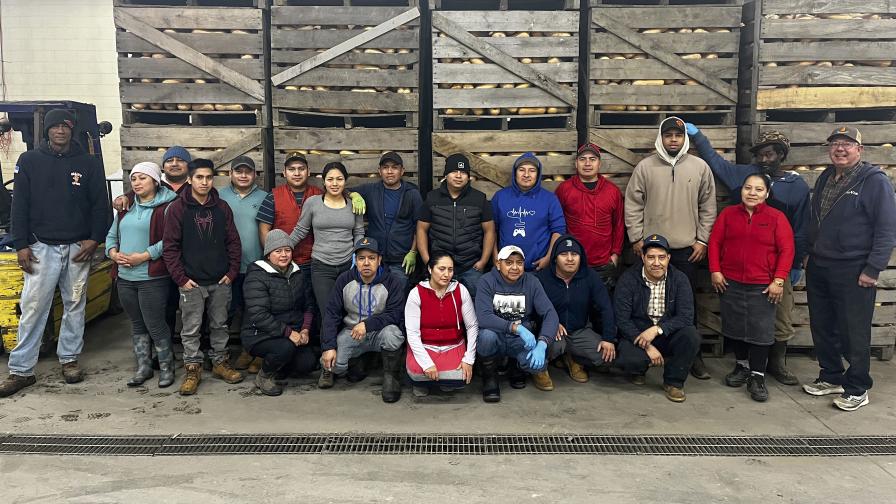
Walter Czajkowski doesn’t have trouble retaining his talented crew. By sticking with him, they’re offered opportunities many growers do not extend.
Photo courtesy of Plainville Farm
Bartering Still Works
It’s important to Czajkowski to understand limitations and play to strengths. So he relies on a tried-and-true economic management not spoken of much these days: bartering and spot sales to manage input costs and sell produce.
In fact, his basic operational tenants are:
- No contracts. Price fluctuation adds risk for a small farmer.
- No cooperative membership. Cooperatives carry high overheads. Tough on small shareholders.
- Collaborate to diversify supply. Customers want a wide array of produce. Everyday.
“I love the barter system,” Czajkowski says. “Nobody has a perfect supply of anything all the time. Because we work with our neighbors, we can smooth out the supply. One day I’m short of something and a neighbor helps me out. Another day a neighbor is short of something, and I help out the neighbor.”
Same goes for sharing equipment. The neighbors in Hadley, MA, also share land.
“We rotate land with neighbors,” Czajkowski says. For example, he recently used a neighbor’s field to grow vegetables and the neighbor grew grain on his land.
Bartering with neighbors also yields other advantages.
Since a neighbor imported triazine-resistant lambsquarter with some rye seed he bought, Czajkowski is particularly aware of that danger. One of the advantages he cites to buying manure from a neighbor who used one of his fields for grain and straw is having greater control over the weed seed bank. “We’re getting our own weed seeds back,” he says.
Spot Sales Side Steps Unfair Contracts
Spot sales are another area where Czajkowski and his neighbors reap advantages through working together to maintain a diverse supply.
Here’s where the “no contracts” rule comes into play.
Czajkowski sells to chain grocery stores, produce stands, customer-supported agriculture operations, food banks, and processors. When they sold under contracts, he says, all was smooth when the price was flat. In the produce arena, that doesn’t last long. When the price went down, he says, buyers would find ways to reject deliveries so they could buy produce from somebody selling at the lower price. When the price went up, he says, the buyer would pressure the farm for all of its production, leaving no opportunity to capitalize on the higher price.
Today, Czajkowski says, “we will set a price and it will last a month or two, then we’ll reassess it and change it.”
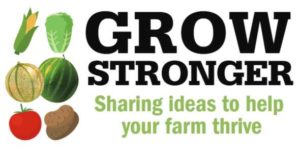
American Vegetable Grower’s GROW STRONGER initiative brings you positive stories from progressive growers filled with innovative solutions to help you grow a stronger future.
While broadleaf tobacco is the primary cash crop at Plainville Farm, Czajkowski also grows asparagus, winter squash, brassicas — cabbage, broccoli, cauliflower, and cucumbers — pickles, and long greens. He supplements the offering available to customers through employee-grown produce and collaborating with neighbors.
“We offer our customers a very wide spectrum of products, but I don’t have to worry about growing 40 different things,” Czajkowski says. “I can focus on the main crops.”
These methods aren’t just for small towns, this third-generation farmer says. He also sees the broader economic picture for U.S. farmers.
“One of the things farmers need to pay attention to is matching supply to demand,” he says. “The natural tendency of all farmers is to overproduce. Sometimes I think we should work less, and we’d probably make more.”
At a Glance: Plainville Farm
Owners: Wally Czajkowski and Mary McNamara
Year founded: Third-generation farm moved to the current location in 1984
Size: 250 acres of produce
Crops grown: Tobacco, squash, cucumbers, brassicas
Location: Headquarters in Hadley, MA
Types of customers: Grocery stores and produce stands, consumer-supported agriculture, food banks, processors




